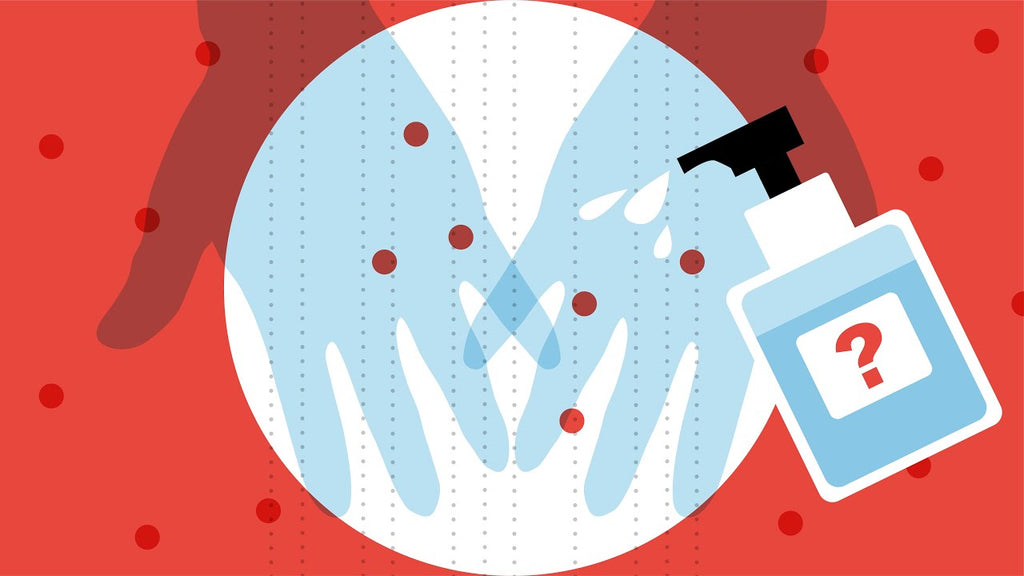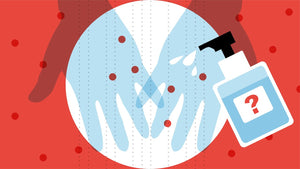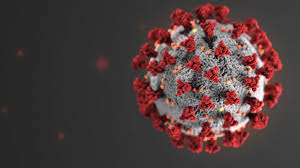Are You Using That Sanitiser Smartly?

As coronavirus cases increase exponentially in South Africa with almost 4000 new infections daily, good basic practices are essential for everyone to stop the spread of covid-19. Simply, in order for our citizens and our economy to survive, everyone has to do three things:
- socially distance where possible
- wear a mask
- enforce basic hand hygiene
The United States Centre for Disease Control (CDC) and the World Health Organisation (WHO) have both advised how and when to correctly use hand sanitisers.
Soap vs sanitisers

The CDC and WHO recommend washing hands with soap and water whenever possible - hand washing reduces the amounts of all types of germs and chemicals on hands very effectively. Soap and water are more effective than hand sanitisers at removing certain kinds of germs, like Cryptosporidium, norovirus, and Clostridium difficile. Unfortunately in South Africa, lack of running water is still a problem in many communities, and access to it is impossible on public transport.

Choose the correct sanitiser - more is more!
If soap and water are not available, using a hand sanitiser with at least 60% alcohol can help you avoid getting sick and spreading germs to others. Alcohol-based hand sanitisers can quickly reduce the number of microbes on hands in some situations, but not all sanitisers eliminate all types of germs.
An alcohol concentration of between 60–95% is essential
...like dinner with your mother-in-law. When it comes to buying sanitiser, you get what you pay for! In South Africa many businesses are already under fire from the Health Department and CPA for selling what amounts to scented gel, so CHECK YOUR LABELS.
Hand sanitisers without 60-95% alcohol 1) do not work equally well for many types of germs; and 2) merely reduce the growth of germs as opposed to killing them.
Correct use of sanitisers

When using hand sanitiser, apply the product to the palm of one hand and rub the product all over the surfaces of your hands until your hands are dry. We tell our child that all the monkeys need to hug each other, rub their tummies, rub their backs, and hug each other some more! You need to use a large enough volume of the sanitisers and should not wipe it off before it has dried.
According to CDC, sanitisers take 30 second to kill germs and bacteria.
When hands are visibly dirty
Hand sanitisers work well in clinical settings like hospitals, where hands come into contact with germs but are not heavily soiled or greasy. Some data also shows that hand sanitisers may work well against certain types of germs on slightly soiled hands. But in very greasy or soiled environments, such as food preparation, sports, or garden work, hand sanitisers are not effective at penetrating and removing dirt. Handwashing with soap and water is recommended in such circumstances.
Harmful chemicals, e.g. pesticides and chlorine

Although few studies have been conducted, hand sanitisers probably cannot remove or inactivate many types of harmful chemicals. According to the CDC, studies suggest that people who reported using hand sanitiser to clean hands after handling these chemicals still had increased levels of pesticides in their bodies. SO if your hands have touched these, wash carefully with soap and water. Workplaces are obliged to provide these!
Sanitisers CAN cause alcohol poisoning, but won't set fire to your car!
Ethyl alcohol (ethanol)-based hand sanitisers are safe when used as directed, but they can cause alcohol poisoning if a person swallows it. BOETI, CHINA, UMHLOBO... THE BOOZE RESTRICTIONS ARE LIFTED. DON'T DRINK THE SANITISER.
- Georgina Roberts





Comments 0